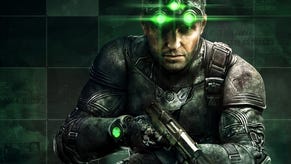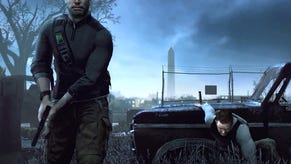Splinter Cell: Conviction's lost features
Why a "true realistic" difficulty never made it.
Ubisoft Montreal has revealed why some hardcore stealth features failed to make it into April's Xbox 360 and PC game Splinter Cell: Conviction.
Some Splinter Cell fans complained that the game steered too far from the core stealth gameplay seen in previous titles in the series. In a post-mortem written by Ubisoft Montreal's Patrick Redding, Alex Parizeau and Maxime Beland for Gamasutra, the development team agreed with this assessment – and explained it.
Conviction, first revealed in 2007, began life as such a notable departure from previous games in the series that Ubisoft "felt one of its key franchises was in potential jeopardy".
It suffered a high profile delay to give the team a chance to implement features existing fans of the series had come to expect from Splinter Cell – effectively the development team started from scratch. But due to time constraints it proved impossible to effectively implement them all.
"Many features that are a given in a Splinter Cell game, such as dynamic lighting, two-handed weapon firing, and gadget management literally needed to be recoded from scratch," the team said.
"Any new mechanics needed to sit on top of these must-have features, putting further pressure on the timetable and creating considerable bug risk.
"For example, the black and white filter that tells the player they are hidden from nearby AI was functionally dependent on the restoration of the light and shadow system. It was impossible to make changes to ambient lighting or the nuances of shadow gradation without impacting the logic of the black and white filter, which made it harder to debug and prevented us from giving the effect the degree of visual polish we wanted.
"Unfortunately there wasn't time to rebuild everything. Analog movement speed was abandoned in favour of a simplified run-walk system. The ability to pick up and hide dead bodies was never recreated, nor was lock picking, nor the full variety of door-entry mechanics."
Conviction was designed as a more accessible, less punishing stealth game that would broaden Splinter Cell's audience. This meant the loss of some core features long-term fans had come to expect from the series, such as the ability to move dead enemies and the use of a knife for close quarter kills.
"Stealth games in general occupy a relatively narrow niche, and Ubisoft needed to expand the franchise's appeal or risk it falling between the cracks, pleasing no one," the team revealed.
"Earlier chapters in the Splinter Cell series had emphasized a fairly punishing model of stealth play that required painstaking observation and concealment, and which generally ended badly if the enemies' suspicions were ever aroused to the point of violence.
"Opening the series up to new players who were wary of its reputation meant devising completely new mechanics and streamlining much of the complexity from the original systems. Unfortunately, some much-appreciated features - like the ability to move dead enemies, or use a knife for close-quarters kills - fell by the wayside because they were never included in the original design requirements, and there wasn't sufficient time left to reintegrate them and polish them to the standard of the earlier games.
"Among other things, the compounding development pressures left the team without enough time to implement and polish a true 'realistic-hardcore' difficulty setting that would have better satisfied the desire of some players to tackle the game in a more traditional way."
Simon Parkin turned up a 7/10 in Eurogamer's Splinter Cell: Conviction review.
"Where once players were free to tackle Splinter Cell's enemies in myriad, improvised ways, now the options are more limited, traded for an upped tempo that's more Arkham Asylum than Metal Gear," he wrote. "At its best, Conviction is played as a high-stakes puzzle game, taut and thrilling when everything is going your way. But when cover is broken, the floodlights go up to reveal a mediocre shooter. Perhaps the greatest irony of all is that Splinter Cell: Conviction appears brightest in the dark."
A sixth game in the series is currently in production at Ubisoft's Jade Raymond=managed Toronto studio.





